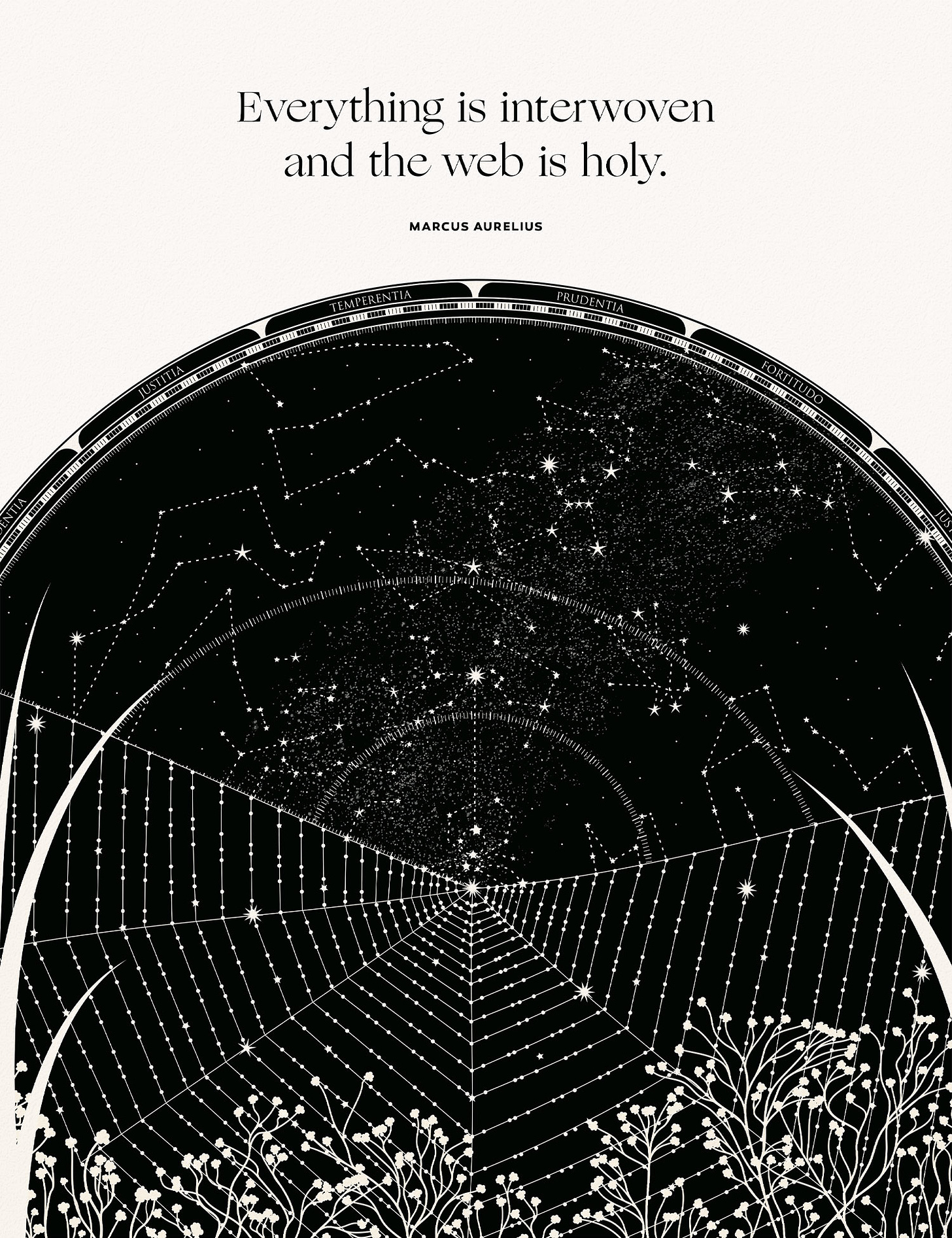
Marcus Aurelius on Grand Unified Theories
“Everything is interwoven, and the bond is holy; and there is hardly anything unconnected with every other thing. For all things have been co-ordinated, and they combine to make up the world. For there is one universe made up of all things, and one power that animates all things, and one substance, and one law, and one reason.” - Marcus Aurelius, Book V, p. XX.
One substance, one law, one reason. Marcus Aurelius brought together his understanding of science, spirituality and philosophy together into a unified vision of the world. He wrestled with the most fundamental confounders of a positive unified theory - evil, ignorance, mortality, suffering, vice, fear - and created a productive, meaningful, cohesive vision of how one ought to live. I admire that he was able to arrive at a metaphysics of inter-connectedness without heavily relying on the gods as a backstop. The gods do make a few appearances in the Meditations, but the book primarily focuses on a ground-up approach to sense-making; observations about the challenges of life as central to our experience and therefore central to our purpose, and the acknowledgement that we usually only have control over our own actions, and ultimately only our own thoughts.
From this almost Cartesian beginning with the quality of one’s own mind (something like “I think therefore I am free”), he builds up to an ethics of how we ought to behave, observing that while we cannot reliably compel others to behave morally, we can help shape the world by behaving morally ourselves. And that by doing so, we tilt the world toward something better in small but profound ways, because everything is interconnected. “Be the change you want to see in the world” is implied in Meditations, although it is framed in the context of personal responsibility; something like “if you know you must change, why do you hesitate? Change.”
As a person who sometimes lets too much thinking immobilize him, it is exactly the kick in the pants I need.
Theories of Everything abound in the world, and always have. From long-extinct religions to the recently extinct science to super-tired deepities (love is just a word!), we can’t help but try to connect all the dots. And one way or another, we all do. There’s nothing profound about that observation, and judgment and self-righteousness are cheap. The question is how can you mold a narrative that not only comports with reality, but with the conflict between different world views. How do we maximize tolerance and cooperation across different world views, and what basic tenets are so essential to society that we must all agree to share them?
As emperor, Marcus Aurelius held complete control over the Roman Empire's administration, religion, military, and economy, while also being venerated as a living god. His powers stemmed from money, legions, Senate and people. He could have created whatever world view he wanted merely by fiat decree, and imposed it on every corner of empire. He occupied a position of power that corrupted so many other emperors; most succumbed to madness, egomania and depravity. Yet Aurelius’ philosophy is intensely focused on personal responsibility, a contrast between the strictest discipline for himself and a patient generosity toward the shortcomings of others. In an age where more human beings are becoming more god-like than ever before, I wonder who among us could have such discipline.
This illustration is from our upcoming Aurelius book The Meditations. There’s only one week left in the campaign, so check it out!


